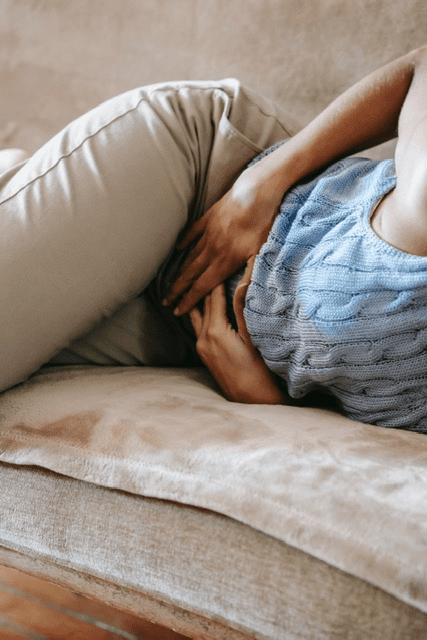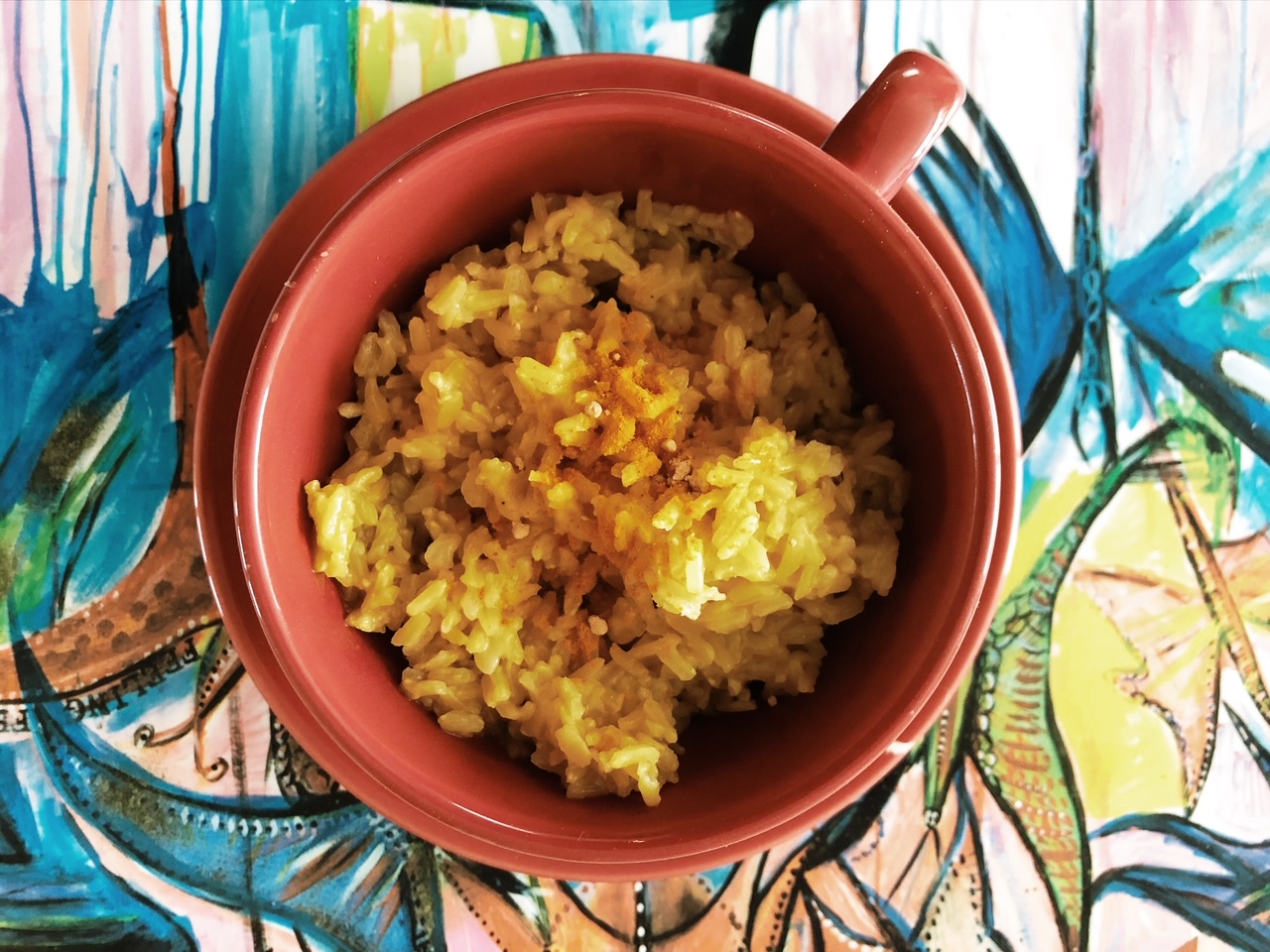There are beneficial and harmful bacterias in our intestinal tract. The good bacterias are lactic acid bacterias such as Lactobacillus and Bifidus that are part of a normal intestinal flora and are involved in both digestion and immunity. They are found naturally in the diet we eat. The yeast and parasites are not harmful in a healthy person, but with poor eating habits and a lot of stress, the amount of good bacterias decrease. In Ayurveda your digestive health is the source of general health. Your agni, your digestive fire, should be strong enough to build ojas, the vital energy that builds our immune system. There are two different forms of yeast: In ”yeast form” it is not harmful, but when it turns into a fungus and produces toxins, that penetrate into the bloodstream and thereby invades the whole body, it becomes harmful. Some substances reach the brain and can adversely affect mood and memory. The ”yeast fungus” spreads from the bloodstream to other parts of the body such as the mouth and abdomen. Vaginally, it can spread e.g. through sexual intercourse and tampons.
An imbalance in the intestinal flora due to yeast infection can cause different symptoms like:
- Strong craving for sweets and carbs that cause blood sugar fluctuations
- Headache
- Fatigue
- Feeling of heaviness and bloating
- Recurrent urinary tract infections
- Foul-smelling discharge
The stool may be grayish white. The tongue can have a thick white and sticky coating that is called ”Ama” in ayurvedic terms. Ama is a toxic substance that increases in the body by undigested food. It is said to be the root cause of many chronic diseases. You may also experience bad breath. Antibiotic and penicillin treatments often have no long-term effect. They are very helpful for an acute situation, but does not prevent yeast infections. Bad-smelling bowl movements are NOT normal and you should not live with them either. Mental symptoms can range from anxiety, depression, bad memory and “brain fog”.
But why do so many people have yeast infections?
A typical western refined diet with very fatty, sugar-enriched foods and “white” or bad carbs may be a big part of the problem. Any intake of yeast and too much fermented food can contribute to yeast overgrowth in your intestines. Foods that contains dyes and additives overload the detoxifying ability of the liver and kidney function. Hypersensitivity to certain foods and foods that contain allergic proteins can worsen the situation.
If you take medications such as antibiotics, cortisone, birth control pills and pain killers, your intestinal flora is disturbed and the liver needs to work harder. If you have allergies, a metabolic disease such as diabetes or a condition where the immune system is weakened, you are more sensitive. The immune system is not that strong and the body accumulates toxins more likely. Other external factors such as environmental toxins, exposure to pesticides, electromagnetic radiation and regular or permanent exposure to microplastics weaken the immune system further more and the Candida may increase.
Do you find your everyday life stressful?
Simple day-to-day situations may stress your mind or body. An imbalance in Vata constitution coul dbe too much thinking and worrying, restless sleep and too much travelling. If Pitta increases it’s presence vigorous daily physical exercise, too hot and spicy food, and too much heat brings you out of balance. If Kapha is dominant, too many changes in daily routines, no exercise or mental stimulation at all can increase stress. How is family life and how do you feel at work? Are your happy? When you are stressed and tired, people tend to eat fast food or buy ”a quick meal” containing often bad carbs like bread or pasta. The immune system is also not the best when you have experienced long-term stress. Questions to ask yourself are:
- Do I chew my food thouroughly?
- Do I take my time when I eat?
- Do I have a tendency to overeat?
- Do I stop eating when I burp?
If your answer is NO to all of these questions, the main reason for discomfort after eating and in general might be just that. I used to ”take a pill” that miraculous should stop all my bloating and dicomfort and help me digest the food. But is this really a long-term solution? To take pills? My answer is no! It might help you short-term, but to really get rid of the cause one has to change eating habits, chew thouroughly and start to eat slowly and especially stop overeating. Did you know that when you burp, it is the body’s signal that you are full? According to Ayurveda, the stomach should be filled 2/3 with food, 1/3 with fluid and 1/3 with air. If you burp and continue to eat, you fill the stomach so that there is no space to mix the food properly, the air is pushed up and you burp. Some people even might get heartburn.
Excess food stays longer in the gastrointestinal tract. The fermentation process can last for days and weeks to come. According to Ayurveda, digestion is a harmonious interplay of different organs to break down food into smaller particles. Too much and too little bowel movement creates imbalance. Digestion begins in the mouth where enzymes in the saliva make you feel hungry. When eating, gastric acid in the stomach usually kills harmful bacteria and parasites and some of the nutrients are absorbed. If you are constantly stressed and maybe even take proton pump inhibitors such as Omeprazole, that is often prescribed for acid reflux, and painkillers for an extended period, the stomach does not produce enough gastric acid. In case of gastric acid deficiency, one can get a B-12 deficiency causing the person to feel very tired. One may have problems with the nervous system and have a pale appearance and a very pale tongue. The intestinal tract needs the right pH value to function optimally and if the stomach does not produce enough gastric acid, the pancreas will also not secrete digestive enzymes to further break down and absorb proteins and carbohydrates from the food. Aa yeast infection on top of that further inhibits nutrient uptake. You can have a well-functioning digestive system, but still no good ability to handle digestion. You can eat very healthy and feel good, but if “Agni”, the digestive fire, is not strong enough or if “Ama” has been manifested in the body through overeating, poor digestion and yeast infection you won’t absorb all the nutrients from the ”healthy” foods. Adding gastric acid and digestive enzymes in form of supplements can help you short-term, but is not something that you can count on in the long run. Ayurveda, on the other hand, works from a holistic approach where you can achieve sustainable health.
How can Ayurveda help against yeast infections and imbalance in the intestinal flora?
You need to look at your eating routines, diet and exercise habits, as well as stress. A diet that excludes refined sugars, sweets and fruits can relieve symptoms in the first few weeks. In general, you should eat simple meals and create a stress-free environment. Before a major diet change, you should think about your motivation and attitude towards food. Is emotional eating a problem? A diet change can be a liberation from old habits and an opportunity for a new and healthier life. Diseases do not occur overnight but are a consequence of processes that have been going on for a long period of time. The same goes for healing, it happens gradually.
Ayurveda considers yeast infections as an imbalance in Pitta and Kapha dosha due to a slow digestion and not having the right quality and amount of gastric acid and enzymes. To regulate Pitta dosha here slow eating or mindful eating and relaxation is priority. If stress and too much thinking is a contributing factor, you might have to create more regularity and structure in your daily life as Vata dosha might be dominant. For Kapha-types spicy and heating foods are good and more exercise in general. Diets that contain too much dry or moist-liquid food can give a susceptibility to fungal infections, worms and parasites. Unfortunately, you should completely exclude sugar, as well as fermented foods such as bread, pickled vegetables and dairy products for a certain period of time to reset your intestinal flora. You can eat a diet that pacifies Pitta dosha and calms Kapha dosha.
An herbal recipe that you can try twice daily with warm water until the symptoms disappear is:
¼ tsk Turmeric
½ tsp Licorice root
1/2 tsk Shardunika (Gymnema sylvestris)
Turmeric is anti-inflammatory, reduces flatulence and supports digestion. It has a warming effect and is bitter, sharp and astringent in taste. Licorice root is antimicrobial, sweet in taste and has a cooling effect. Shardunika neutralizes sweet flavors and regulates blood sugar levels. You can also take Triphala before going to bed. Triphala is an herbal blend of equal parts of each Haritaki, Amalaki and Bibhitaki that helps with cleansing and against gases. For vaginal problems such as itching and pain, you can rinse or bathe the labia with a solution of 3 Tsp bicarbonate on 3 dl warm water or a 1/2 tsp apple cider vinegar in 2 dl lukewarm water. Other herbs that have an intestinal cleansing effect are black walnut, cloves and wormwood. Herbal teas that you can try are Pau d’arco, yarrow, juniper berry, rosemary and eucalyptus. Pau d’arco has a fungicidal and diuretic effect but depletes the body of minerals and vitamins and becuas eof that one has to eat a vitamin and mineral-rich diet or even consider to use supplements with it. Holistic has a product that contains a combination of suitable herbs – UltraBalans.
Ayurveda tries to find the cause of symptoms and discomfort. The reasons can vary from person to person because we have different lifestyles, eating routines and tendencies, so there is no one-size-fits-all solution. You get the best help from an Ayurvedic doctor or health. If Ama is present in the body, I recommend an ama-cleanse diet 1-2 weeks that is adapted to your individual constitution and with herbs that benefit you. I would recommend foods and herbs that balance just your dosha imbalances. You can always book a free meeting online or at my clinic in Helsingborg.
Book sources:
Vasant Lad, The Complete Book of Ayurvedic Home Remedies
Peter Wilhelsson, Candida – The popular disease of our time


